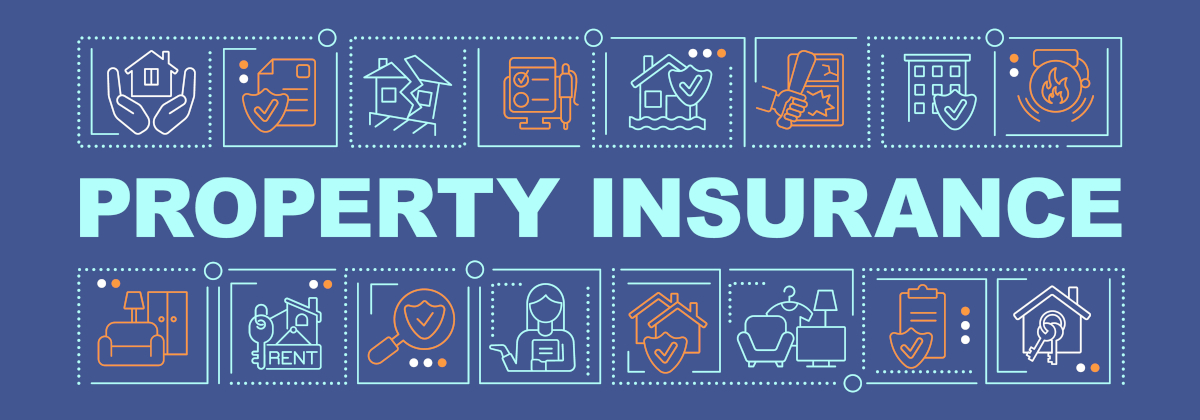Understanding the Different Types of Property Insurance Coverage: Are You Fully Protected?

Property insurance is a crucial component of personal financial planning, yet it's often misunderstood. According to a 2021 insurance survey by the Insurance Information Institute, 95% of homeowners have homeowners insurance, but most need to learn about their policies' specific coverages and limitations.
Today, we aim to demystify the various types of property insurance and highlight the importance of taking a comprehensive approach to insuring your property.
Homeowners Insurance
Homeowners insurance is the foundation of personal property coverage. It typically includes:
- Dwelling Coverage (Coverage A): Protects the structure of your home.
- Other Structures Coverage (Coverage B): Covers detached structures like garages or sheds.
- Personal Property Coverage (Coverage C): Insures your belongings.
- Loss of Use Coverage (Coverage D): Provides funds for temporary living expenses if your home becomes uninhabitable.
- Personal Liability Coverage (Coverage E): Protects against lawsuits for bodily injury or property damage.
- Medical Payments Coverage (Coverage F): Covers medical expenses for injuries sustained on your property.
It's crucial to understand that standard homeowners policies have exclusions. For instance, according to the Federal Emergency Management Agency (FEMA), 90% of natural disasters in the U.S. involve flooding, yet standard homeowners insurance doesn't cover flood damage.
Flood Insurance
Flood insurance is a separate policy that covers damage from flooding. It's mandatory for homes in high-risk flood areas with federally backed mortgages. However, considering that more than 20% of flood claims come from properties outside high-risk zones, it's worth considering even if not required.
Earthquake Insurance
Like flood insurance, earthquake coverage is typically excluded from standard homeowners policies and must be purchased separately or as an endorsement. This is particularly important in seismically active regions.
Personal Property Floaters
For high-value items that exceed the limits of standard homeowners insurance (e.g., jewelry, art), personal property floaters provide additional coverage. These policies offer broader protection and often don't have a deductible.
Renters Insurance
For those who don't own their homes, renters insurance provides personal property and liability coverage. Many renters mistakenly believe their landlord’s policy covers them, but this only covers the building structure, not tenants' belongings.
Condo Insurance
Condo owners need a specialized policy that works in conjunction with the condo association's master policy. It typically covers personal property, liability, and improvements to the unit.
Umbrella Insurance
While not strictly property insurance, umbrella policies provide additional liability coverage beyond the limits of homeowners or auto insurance. This can be crucial for high-net-worth individuals or those with significant assets to protect.
Understanding how these different types of coverage complement each other is essential. For example, while your homeowners policy might provide $100,000 in liability coverage, an umbrella policy can extend that protection to $1 million or more. Similarly, a flood policy can fill the gap left by your homeowners insurance in the event of water damage from external sources.
It's important never to assume that one type of policy covers a specific peril. Always review your policies carefully. Remember, the goal is to create a comprehensive insurance portfolio that protects your property and assets from a wide range of potential risks. For a thorough review of your insurance plan, contact my office today.
Featured Blogs
- Why Choosing an Independent Insurance Agent Could Be Your Best Decision Yet
- Autonomous Vehicles and Insurance: Adapting Policies for the Future of Driving
- Exploring the Benefits of Whole Life Insurance Beyond Basic Coverage
- The Critical Role of Life Insurance in a Comprehensive Personal Finance Strategy
- A Layman's Guide to Choosing the Right Health Insurance Plan
- Protect Your Castle: Essential Tips for First-Time Homebuyers on Choosing Home Insurance
- Flu Season Survival Guide
- How to Create a Home Inventory for Insurance Claims
- Prioritizing Preventive Care in Your Wellness Journey
- Brown and White Eggs: What’s the Difference?
- DIY Disaster Preparedness Kit: Make your own disaster preparedness kit with these essentials to keep your property and family safe
- Understanding the Different Types of Property Insurance Coverage: Are You Fully Protected?
- Why Supplemental Health Insurance Might Be Worth Considering
- The Benefits of Bundling: How Combining Policies Can Save You Money
- Is there such thing as Hurricane Insurance?
- Health Savings Account: Is It Worth It Having it?
- The Impact of New Technology on Insurance
- Why Property Insurance Isn't Enough: Essential Property Preparedness Tips Every Homeowner Should Know
- Healthy Living on a Budget: How Insurance Can Help You Save on Wellness Expenses
- Protecting Your Investments: The Role of Insurance in Wealth Management
- Understanding Co-Pays vs. Coinsurance: Making Sense of Your Health Insurance Costs
- Rising Temperatures, Rising Risks: How Climate Change Affects Property Insurance
- Insurance Myth Busters: Debunking Common Misconceptions about Coverage